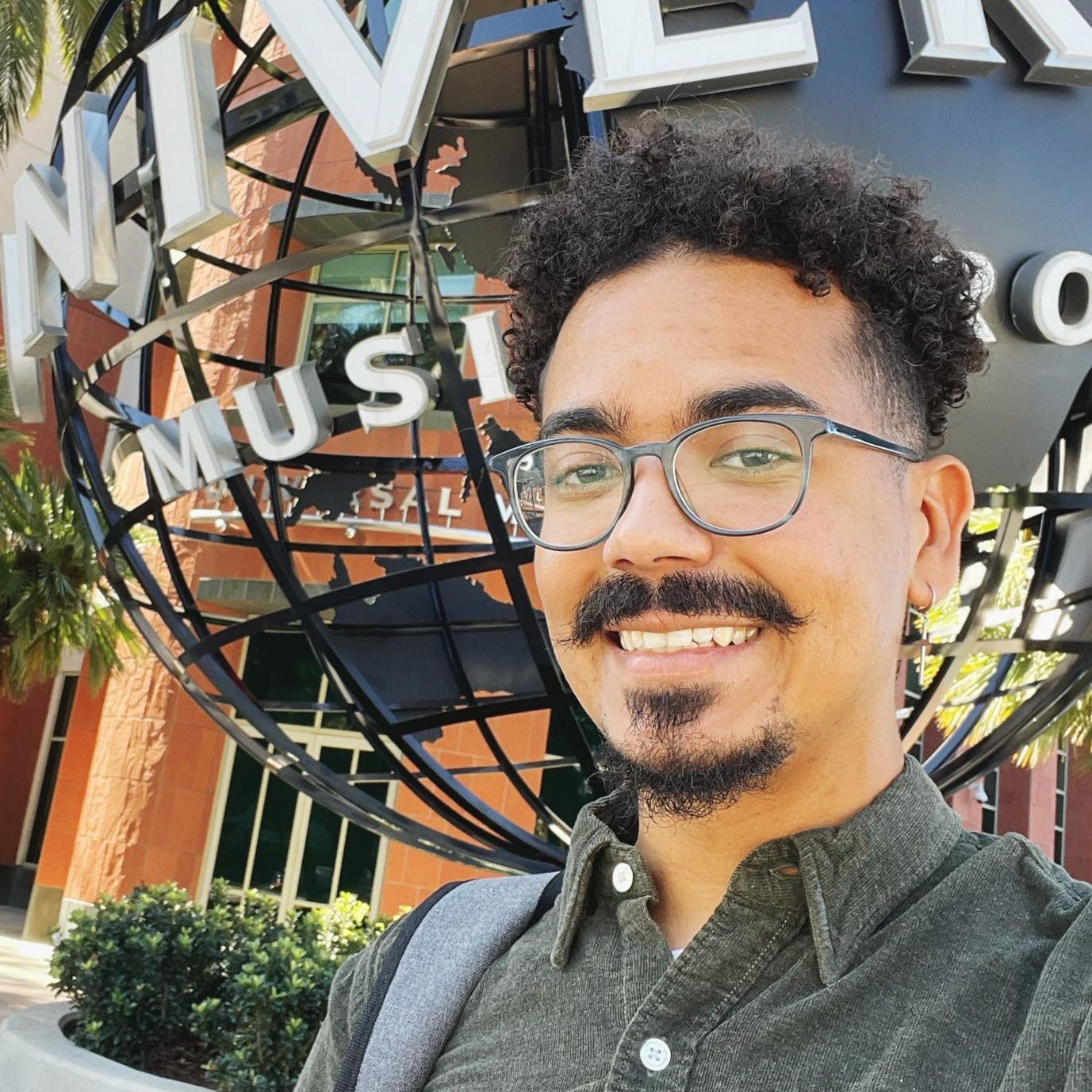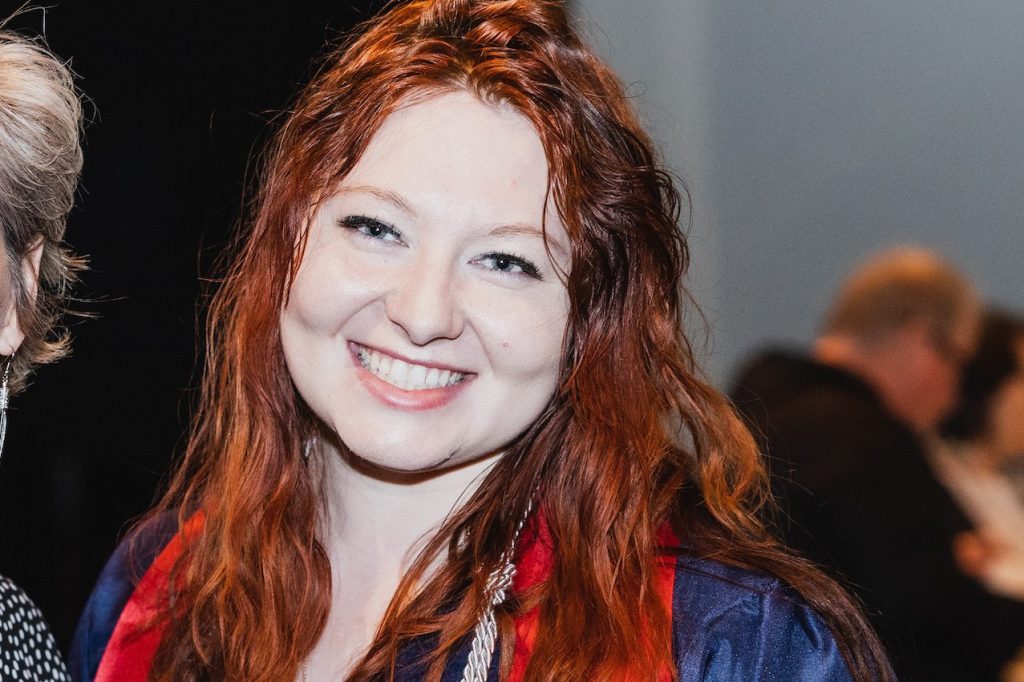About
Bachelor of Arts in Music Business
What is a Bachelor of Arts in Music Business?
The BA in Music Business prepares students for sustainable careers in the multi-billion dollar global music industry. This program will engage you both as an artist and as a businessperson in an interdisciplinary program offered by the School of Theatre and Music in partnership with the College of Business and Administration. The 2016 U.S. News and World Report Best College rankings placed UIC’s undergraduate business program in the top 100 programs in the U.S. BA in Music Business students have secured competitive internships at leading firms and non-profits including:
- The Recording Academy
- Broadcast Music Inc.
- Sofar Sounds
- Biz 3
- The Chicago Philharmonic Society
- The Jazz Institute of Chicago
- The Ravinia Festival
What Will I Learn?
The Music Business program combines coursework in music theory and performance, with coursework in business administration to prepare students for careers in the music industry. At UIC, Music Business students engage in comprehensive musicianship studies, completing coursework in music theory, ear training, and music history. Students also perform in ensembles and demonstrate proficiency in their instrument in recitals connected with private instrumental or vocal instruction. In addition, students complete challenging coursework in traditional areas of business administration such as accounting, finance, marketing and specialized music industry coursework. This interdisciplinary program culminates in practical work experience via internships with leading organizations in the music industry.
What Classes Will I Take?
The music business core coursework consists of:
MUS 290 – Commercial and Legal Foundations of the Music Industry (3 credits)
MUS 390 – Record Company Marketing and Operations (3 credits)
MUS 396 – Music Publishing (3 credits)
MUS 397 – Concert Promotion and Venue Management (3 credits)
MUS 395 – Internship in Music Business (6–12 credits)
Credit Requirements
The summary of requirements below defines the number of credit hours that are required for each segment of the BA in Music Business.
General and Basic Education Requirements
24
Music Course Requirements
56–62
Music Selectives
8
Business Course Requirements
18–21
Electives
4–14
First-Year Seminar (new freshmen only)
1
Total Hours
120
Careers in the Music Industry
Music industry careers revolve around the authorship, production, performance and exploitation of musical compositions. Products can take the form of a live performance, sound recording or multimedia work. Careers that are closest to the composition and performance of music would be those of the composers and artists. Supporting their careers are what is referred to as the artist’s development team, made up of personal mangers, agents, attorneys, accountants and others who specialize in the music industry. The most visible businesses in the industry are record companies, and concert promoters who are in the business of signing musical acts and developing products for release in the form of records and tickets to performances. Less visible, behind-the-scenes, businesses include music publishers, agencies, law firms, music supervisors, music unions, analysts, and many others. At UIC you will study with working professionals, connected to the region’s music networks, preparing you for careers across the industry landscape.
Careers involving music can also involve other arts disciplines such as film, television, advertising and gaming as well as disciplines such as technology and engineering. As Chicago’s only public research university, UIC offers a unique opportunity for students to gain valuable technical knowledge that helps them stand out in the job market. Chicago is home to a very vibrant music-tech community. At incubators like Chicago’s 2112 Inc., music tech companies operate side-by-side in a dynamic atmosphere.
Many leading music organizations are nonprofit. These organizations include orchestras, educational institutions, national academies and research institutes. UIC School of Theater and Music has close relationships with leading nonprofits such as the National Academy of Recording Arts and Sciences and the Chicago Philharmonic. Non-profit organizations are formed for a charitable cause and funded by both traditional activities such as box-office sales and subscriptions as well as charitable gifts to the organization from donors.
The music business and other media industries are rapidly changing. Technology, consumer behavior, and trends in the global economy have lead to rapid changes in traditional business models. New businesses are launched every year to solve problems in this ever-changing industry. UIC offers excellent support to students who aspire to launch their own companies and found their own firms in the music industry. Entrepreneurship studies at UIC are nationally recognized. The Princeton Review and Entrepreneur Magazine‘s survey of more than 700 American schools have ranked UIC in the top 25 programs nationwide. The UIC Institute for Entrepreneurial Studies offers a portfolio of diverse programs including classes, workshops, challenges, and certificates that introduce new venture development skills and experiences.
Alumni Spotlight

“The UIC music business program set me up for success with Professor DiFazio’s hands-on approach to work. Mock calculations and assignments within Excel are highly relevant in my career today. I was always pushed to go for significant opportunities and given feedback. Without the guidance of Professor DiFazio and the UIC community, I wouldn’t have had the push to end up at UMG.”
Chason Rice
Class of 2023
Billing Coordinator
Universal Music Group
Connect on LinkedIn

“UIC’s music business program offers a pragmatic breakdown of various paths in the music industry. Professor DiFazio’s experience and guidance allow students to explore many opportunities for success in this field. Thanks to this comprehensive approach and exceptional professors at UIC’s STM gave me the room to succeed—securing a dream career at the Country Music Hall of Fame and Museum.”
Emily Fine
Class of 2023
Public Programs Coordinator
Country Music Hall of Fame
Connect on LinkedIn
Faculty Spotlight
Robert DiFazio, Music Business Coordinator, Clinical Assistant Professor.
Robert is a music producer and business systems developer with thirteen years of teaching experience at the college level. He has previously worked as a faculty member in the Music Business Management program at Columbia College Chicago. In 2016 he was awarded the Provost’s Excellence in Teaching Award from Columbia College Chicago and served as a member of the Provost’s Excellence in Teaching Award Committee for two years.
Robert has served as a recording engineer and music producer since 2004, working with artists including The Main Squeeze and Tim Stopulos. Robert served as a staff producer/engineer and as a manager at StudioChicago, working with clients such as Machine Gun Kelly, Snoop Dog, and the Chicago Bulls. Robert’s recent work is in application development, building solutions for businesses that provide music distribution, royalty reporting and decision support services. Robert has developed solutions for firms including NueMeta and Cache that involve bringing together data from APIs, DDEX messages and usage reports to produce key metrics for decision-makers. Robert holds a BS in Sound Recording Technology from DePaul University and will receive an MS in Management Information Systems from UIC in December 2018.
Robert’s students have gone on to work in top industry positions at firms such as Sony Music Entertainment, Universal Music Group, Shazam, The Harry Fox Agency, and TuneCore.
Please contact Robert DiFazio at rdifaz2@uic.edu if you have any questions about the application process, audition requirements, etc.



